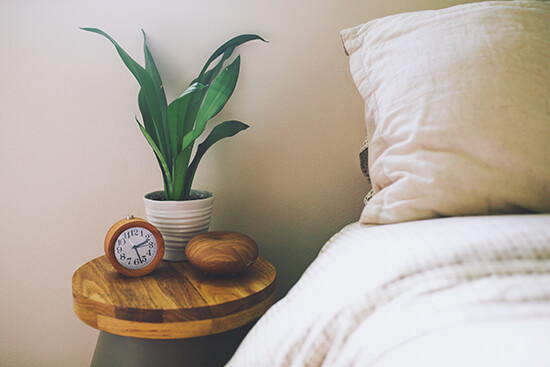
Indoor air quality (IAQ) is both a comfort issue and a health priority. According to the Environmental Protection Agency (EPA), indoor air can be 2 to 5 times more polluted than outdoor air.
The good news? Improving air quality at home doesn’t have to be complicated. At Gulf Shore Cooling, we’ve equipped Florida homeowners with the right strategies to improve indoor air quality. With our simple guide, we’ll show you how to improve air quality in your home so you can breathe easier and enjoy a healthier indoor environment.
Why Indoor Air Quality Should Be a Top Priority
Poor air quality doesn’t just affect people with allergies or asthma. It can impact the sleep quality, energy levels, and long-term health of just about anyone. Indoor air filled with dust, mold, or volatile organic compounds (VOCs) can lead to symptoms such as:
- Headaches
- Fatigue
- Respiratory infections
- Dry skin and eyes
- Reduced productivity
For families in Florida where humidity levels soar, the risks are even higher. Moisture-heavy air makes it easier for mold, mildew, and dust mites to thrive, especially in sealed homes with limited ventilation.

Top Sources of Indoor Air Pollution in Homes
Before learning how to improve air quality in your home naturally, it helps to understand where certain pollutants come from. Even if your home looks clean, hidden sources may still be affecting your air.
Common indoor air pollutants include:
Biological Contaminants
These include mold spores, bacteria, viruses, pollen, pet dander, and dust mites. They often hide in damp areas like basements, crawlspaces, or poorly ventilated bathrooms.
When stirred up, these particles can trigger allergic reactions or respiratory distress, especially for those with asthma.
Secondhand Smoke and Aerosols
Tobacco smoke is one of the most dangerous indoor pollutants, releasing over 7,000 chemicals into the air. Not only that, but even household aerosols like air fresheners or hairspray can add harmful VOCs to your indoor air.
Carbon Monoxide (CO)
Odorless and invisible, carbon monoxide comes from gas stoves, fireplaces, furnaces, and cars left running in attached garages. High levels can be fatal, while even small leaks can cause dizziness, confusion, or flu-like symptoms.
Indoor Particulate Matter (PM)
Particulate matter (PM) refers to tiny particles suspended in the air, often from cooking, fireplaces, smoking, or outdoor pollution that’s tracked inside. These fine particles can cause inflammation or worsening heart and lung conditions.
Indoor Microbiome
The microbial makeup of your home includes bacteria, viruses, fungi, and mold species. While not all microbes are harmful, an imbalanced microbiome can throw off your home’s natural environment and create respiratory sensitivities over time.
Mold and Moisture
Mold is a common issue in Florida homes. High humidity, leaky pipes, or poor insulation can allow mold colonies to form in walls, attics, or ductwork. These spores can irritate your lungs and worsen symptoms for anyone with mold sensitivities or autoimmune conditions.
Nitrogen Dioxide (NO₂)
Produced by gas stoves and unvented heaters, NO₂ is a dangerous respiratory irritant that can exacerbate asthma and reduce lung function. If you cook indoors using gas, it’s essential to have proper ventilation, like range hoods or open windows.
Top 10 Ways to Improve Indoor Air Quality
Improving indoor air quality doesn’t always require expensive equipment or major renovations.
The right preventative measures can significantly reduce indoor pollutants, help you breathe easier, and reduce allergens and odors. If you’re wondering how to improve indoor air quality, these simple steps should help:
1. Change Your HVAC Air Filter Regularly
Your HVAC system circulates air throughout your home. If the air filter is clogged with dust or debris, it won’t trap airborne particles effectively. In some cases, it may even blow them back into your rooms.
Replace your HVAC filter every 1 to 3 months and choose one with a MERV rating of 8 or higher for better filtration.
2. Schedule Professional Duct Cleaning
Over time, your ductwork can accumulate dust, pet hair, pollen, mold, and even insects. Every time your system runs, these pollutants are pushed into your living spaces.
A professional duct cleaning from Gulf Shore Cooling removes the buildup you can’t reach on your own and improves overall airflow. It can also help alleviate musty smells and excess dust in your home.
3. Use a Whole-Home Air Purifier
While portable purifiers help in small rooms, whole-home systems attach directly to your HVAC unit and filter the air as it circulates. These systems help remove dust and VOCs with minimal maintenance once they’re installed.
4. Install a Smart Thermostat With IAQ Sensors
Modern thermostats not only adjust the temperature, but they also track air quality indicators like humidity and carbon monoxide levels.
Some models send alerts when indoor air quality declines or when it’s time to change filters. Others integrate with whole-home purifiers or ventilation systems to improve conditions automatically.
5. Control Indoor Humidity With a Dehumidifier
In Fort Myers and other parts of Southwest Florida, humidity is a year-round concern. Installing a dehumidifier helps maintain healthy indoor humidity levels, ideally between 30%-50%. Whole-home units are often more effective and energy-efficient than small plug-in devices.
6. Improve Home Ventilation
Stale indoor air needs a way out, and fresh air needs a way in. Good ventilation prevents indoor pollutants from building up and helps regulate humidity. You can improve ventilation in your home by:
- Cracking windows when the air outside is clean
- Installing exhaust fans in bathrooms and kitchens
- Adding an Energy Recovery Ventilator (ERV) to bring in fresh air without sacrificing efficiency
7. Reduce VOC Exposure From Paints and Cleaners
Volatile Organic Compounds (VOCs) are invisible chemicals that evaporate into the air from household items like solvents, cleaners, and air fresheners. Long-term exposure to these chemicals can lead to physical symptoms and illness.
To reduce VOC exposure, try:
- Using low- or zero-VOC products
- Storing chemicals in sealed containers outside of the main living spaces
- Limiting the use of air fresheners and sprays
8. Use Cooking and Bathroom Exhaust Fans
Daily activities like cooking and showering generate steam, odors, and particles that affect air quality. Use exhaust fans every time you cook or bathe to help remove smoke, grease, moisture, and fumes from the air.
9. Vacuum With a HEPA Filter
Vacuuming regularly is essential in reducing pollutants, but only if your vacuum can trap small particles. Standard vacuums often stir up allergens and let them escape back into the air.
Choose a vacuum with a HEPA filter to trap pet dander, pollen, and other fine particles.
10. Keep Windows Closed on High Pollen Days
While ventilation is important, opening windows during allergy season can bring in a flood of outdoor irritants. To minimize pollen exposure, check the weather forecast and keep the windows shut on days when the pollen count is high.

How to Improve Indoor Air Quality With Your HVAC System
Your HVAC system plays a critical role in maintaining clean, breathable air. With the right upgrades and regular maintenance, it becomes a frontline defense against indoor pollutants.
Here’s how to boost IAQ through your HVAC system:
- Swap filters regularly (every 1–3 months).
- Upgrade to higher MERV-rated filters for better particulate removal.
- Install UV light purifiers to neutralize airborne pathogens.
- Seal and clean ductwork to reduce dust buildup and airflow obstruction.
- Add a whole-home air purifier or ERV system for full-spectrum protection.
Improve Air Quality by Managing Humidity in Your Home
Florida’s coastal climate brings persistent humidity that can threaten indoor air quality. High humidity can warp wood, damage furniture, and cause unpleasant odors.
An effective solution is to install a dehumidifier that works in tandem with your HVAC system. A whole-home dehumidifier manages humidity levels, reduces the risk of mold, and improves your comfort all year long.
The Role of Ventilation in Clean Indoor Air
Ventilation is one of the most overlooked factors in indoor air quality. Without fresh air circulation, pollutants accumulate, humidity rises, and air becomes stale. You can improve ventilation by opening windows and utilizing exhaust vents.
Energy Recovery Ventilator (ERV) systems are also particularly helpful in Florida, as they transfer heat and moisture while bringing in filtered outdoor air.
When to Schedule a Professional Indoor Air Quality Assessment
If you’ve tried DIY solutions and still notice signs like musty odors, worsening allergies, or condensation on windows, it may be time for a professional indoor air quality assessment.
Consider scheduling an IAQ consultation if:
- Someone in your home has respiratory issues or chronic illnesses
- You’ve recently had water damage or remodeling
- Your HVAC system is over 10 years old
- You’re planning to upgrade to a smart thermostat or purifier
A certified HVAC technician can test your air for certain particles and create a plan to treat them. This includes mold, VOC levels, carbon monoxide, and even humidity.
A professional evaluation provides peace of mind and helps you prioritize upgrades that make the most impact.
Why Choose Gulf Shore Cooling for Air Quality Solutions in Fort Myers, FL?
When it comes to improving air quality in your home, experience matters. Gulf Shore Cooling is trusted throughout Southwest Florida for delivering expert service, tailored solutions, and top-tier HVAC repairs.
Here’s why homeowners choose us:
- Over 35 years of experience in HVAC and air quality
- Licensed, insured, and factory-trained technicians
- Specialization in whole-home purification and humidity control
- Smart technology integration for proactive air management
- Local knowledge of Fort Myers’ climate and seasonal challenges
Whether you’re managing allergies, humidity, or energy usage, our team helps you breathe easier year-round.
Call Gulf Shore Cooling for Indoor Air Quality Help Today
You don’t have to live with stale air, persistent allergens, or mold concerns. The sooner you take steps to improve your home’s air quality, the sooner you’ll enjoy better comfort, fewer health issues, and a more energy-efficient home.
Gulf Shore Cooling offers expert IAQ services across Fort Myers, including air purification, smart HVAC upgrades, and dehumidifier installations. Give us a call today at (239) 232-6653 or visit our website to schedule your next indoor air quality consultation.
Indoor Air Quality FAQ
How can I tell if my indoor air quality is poor?
Common signs of poor indoor air quality include frequent allergy symptoms, musty odors, condensation on windows, visible mold or dust buildup, and increased headaches.
If you feel noticeably better after leaving your home, air quality could be the culprit.
How can I check the air quality in my house?
Some smart thermostats include sensors to track VOC levels, carbon monoxide, and humidity levels. For detailed diagnostics, schedule a professional assessment through Gulf Shore Cooling.
Do air purifiers actually work for allergies?
Yes, especially HEPA air purifiers. They trap airborne allergens like pollen, dander, dust mites, and mold spores. Whole-home purifiers offer the broadest protection across all rooms in your home.
How often should I change my HVAC filter?
Typically, the rule of thumb is every 1 to 3 months. This varies depending on the local pollen count, your pets, and any household members with allergies or asthma.
Can I test the air quality myself?
Yes, basic IAQ monitors are widely available and easy to use. However, they often don’t detect mold or hidden HVAC issues. For full-spectrum results, including humidity control and pollutant identification, we recommend a professional IAQ test.



